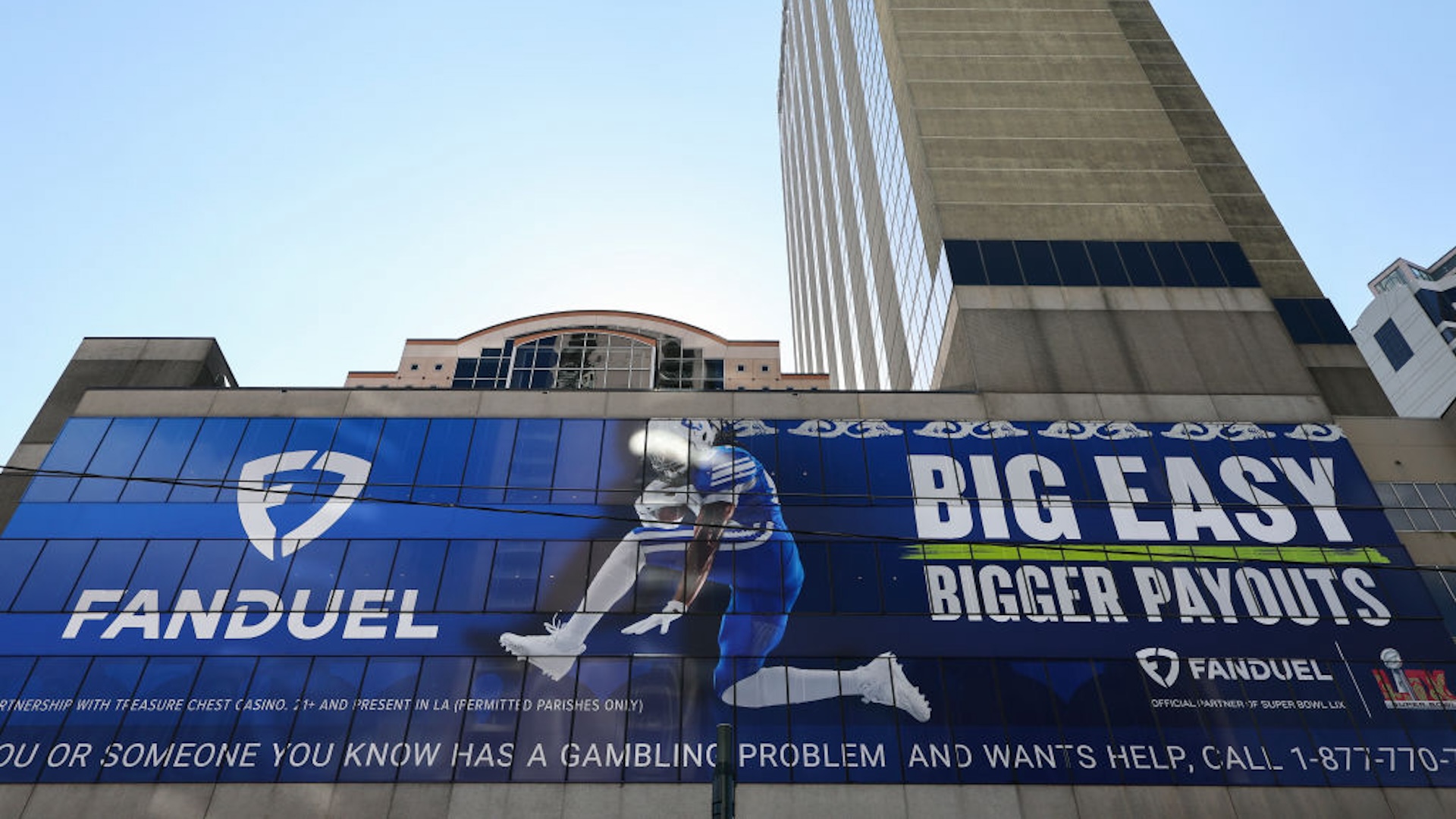The city of Baltimore filed a lawsuit against FanDuel and DraftKings on Thursday, alleging that both companies have violated city's consumer protection ordinance by targeting and exploiting gamblers.
The specific allegations made in the suit—that these sports books hook gamblers with misleading promotions, use proprietary data to profile and target problem gamblers for further exploitation, and seek only to extract as much lifetime revenue as possible from each customer—are all allegations that have been made before in other lawsuits and by people whose problem gambling has been exacerbated by access to online sports books.
The lawsuit details how sports books, which once offered large cash deposits to new customers in order to build their user base, now attempt to hook new bettors with confusing and dishonest promotions:
As of March 2025, both DraftKings and FanDuel continue to employ
similar promotions, where a $5 bet by a new user will unlock $150 in “bonus bets.” The fine print reveals, however, that “bonus bets” must be used within seven days, and can only be made in increments up to $25.37 In other words, to get the full $150 in bonus bets, a user would have to bet frequently—at least six times over the first seven days of signing up. This promotion structure is designed to encourage new bettors to gamble daily, and not merely occasionally as a social activity.Notably, while these offers appear straightforward to a person reading the large, prominent advertising text, they are governed by complex terms and conditions. These terms are presented in small print and through hyperlinks that often become visible only at the point of opt-in. For example, in the promotion presented in Figure 1, found on DraftKings’ website, terms and conditions do not appear until clicked.
The lawsuit also alleges that FanDuel and DraftKings leverage their user data to exploit problem gamblers in the United States, despite using that same data to keep problem gamblers away from their platforms in the United Kingdom, where regulations on the sports gambling industry are more strict:
Despite having extensive data analytics capable of identifying problematic gambling patterns, and despite being well-positioned to implement crucial safeguards that they employ in other jurisdictions, such as financial vulnerability checks, restrictions on VIP programs, and enhanced protections for young gamblers, DraftKings and FanDuel have chosen not to do so.
Instead, Defendants try, with every promotion, every notification, every VIP solicitation, to take what they can from the most vulnerable Baltimoreans, and maximize consumers’ “lifetime value,” no matter the consequences.
What's novel about this lawsuit is not necessarily what DraftKings and FanDuel are being accused of, but who is doing the accusing. This suit marks the first time since the 2018 Supreme Court decision that legalized sports betting that a public entity has brought suit against the gambling industry. The city of Baltimore is not subject to the same arbitration clauses that an individual sports book customer agrees to when creating an account, and this lawsuit seeks more than just statutory damages. The city is also seeking injunctive relief mandating that both companies "cease the targeting and exploitation of disordered gamblers," and "reform their platforms’ exploitative platform design feature restrictions and enhanced marketing restrictions."
If meaningful regulations are ever going to be put on the sports gambling industry, it will require these sports books to be seen not as companies offering a potentially addictive product, but as knowing catalysts for a worsening public health crisis. A major U.S. city making such an argument in court is a meaningful step in that process.
The full lawsuit can be read below:






